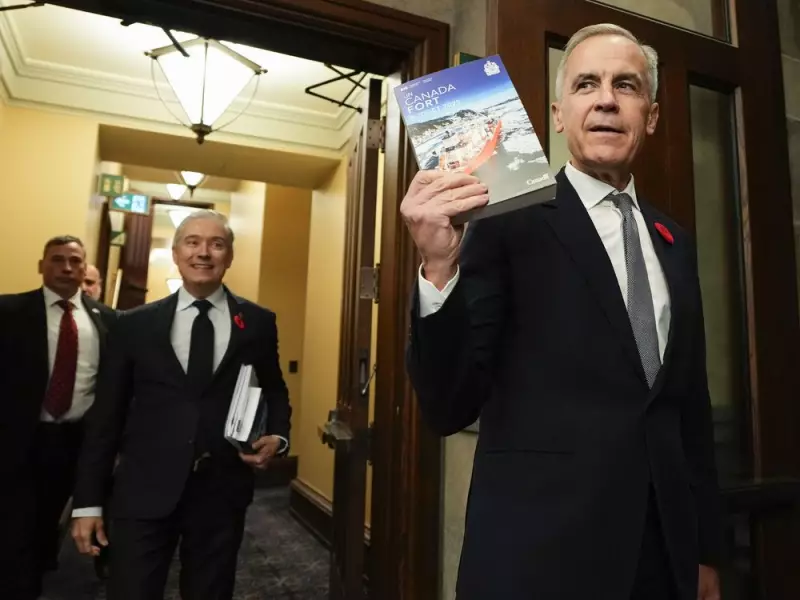
Prime Minister Mark Carney's Liberal government is facing significant public backlash after celebrating what they described as an "austerity budget" with hundreds of lobbyists, political staff, and journalists at an exclusive Ottawa event.
The Celebratory Post-Budget Party
Just hours after tabling the federal budget on November 4, 2025, Finance Minister Francois-Philippe Champagne joined what The Hill Times described as "hundreds of politicos, journalists and libatious Liberals" at the Metropolitan Brasserie. The event was hosted by media outlet Politico and lobbying firm Earnscliffe Strategies.
According to reports, the celebration saw Champagne delivering a "rousing speech from atop a booth seat" before taking a "victory lap for selfies and handshakes" while being "showered in congratulations." The finance minister capped his speech with an enthusiastic "Vive le Canada" before mingling with attendees that included a who's who of Liberal insiders, lobbyists, and government officials.
The Growing Disconnect With Ordinary Canadians
The lavish celebration occurred while ordinary Canadians continue experiencing tough economic times with no immediate relief in sight. The timing and optics of the event have been described as profoundly tone-deaf by critics and political observers.
Veteran Ontario civil servant John Stapleton, now a social policy consultant, had prophetically warned about this exact scenario in an article published on October 29. In his piece titled "Inside the Ottawa Bubble: How Think Tanks and Lobbyists Replaced the Public," Stapleton described the self-referential ecosystem that dominates federal policymaking.
The Ottawa Bubble Phenomenon
Stapleton's analysis reveals how think tanks, lobbyists, political staff, and sympathetic bureaucrats have quietly taken control of the conversation between government and citizens. This "closed epistemic circle" creates a system where former staffers become consultants, consultants become chiefs of staff, and the same worldview circulates continuously between think tanks and ministers' offices.
The system operates through what Stapleton describes as "capture by familiarity" where everyone knows everyone and disagreement feels impolite. By the time proposals reach public consultation stages, the terms of debate have already been set by professionals who understand the right rooms, buzzwords, and tone.
This ecosystem provides mutual convenience for politicians who avoid the "messy and slow" process of genuine public consultation, and journalists on tight deadlines who benefit from spokespeople within the bubble being "fast, available and credentialed."
Democracy Under Threat
The ultimate consequence of this system, according to Stapleton, is the erosion of democracy through the slow outsourcing of thought. While not constituting corruption in the traditional sense, the bubble creates a situation where Ottawa effectively belongs to those who can afford "the airfare, the lobby registration fee, or the research grant" rather than all Canadians.
This dynamic manifests in rising public cynicism, declining voter turnout, and populist anger across the country. Canadians increasingly believe governments don't listen to them because, as Stapleton argues, "too often, they don't." Instead, they listen through intermediaries who sanitize real voices into PowerPoint presentations.
The result is a permanent distance between citizens and their government, with Canadians who feel unheard eventually stopping speaking, and politicians who stop listening focusing instead on management rather than representation.





